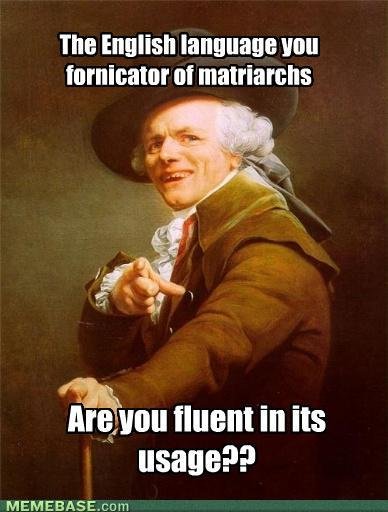I'm honestly not certain how I feel about the legal status of gay marriage; neither opposed legally nor in support. Above all, I'm just bothered by overblown statements that we are reversing a long history of trampling on a basic human right, when that kind of reading of marriage was never comprehensible until recent social shifts in our understanding of individuals and of social obligation, which really are the result of late capitalism and a consumerist logic that one freely chooses every aspect of one's life, and this is not fundamentally progressive. I was a social marxist throughout college, by the way (in the streets for protests, and helped organize things like Food Not Bombs in a couple of cities), so I'm very concerned about communal values and problems with our subjectivity under late capitalism. I don't fit under either side of the political spectrum now.
I've often told conservatives that the term marriage already now means something (an easily dissolved contract of validating romantic involvement and combination of assets) which cannot exclude homosexual unions. Nor have I ever opposed extending full legal rights to gay couples under any equivalent civic union, but I have always been concerned first and foremost with the fact that marriage as a kind of higher good has been greatly degraded on many fronts, and I do indeed feel that the self-centered reading we now have of sexuality and parenthood is in conflict with my religious beliefs and other morals.
The idea that gay marriage is somehow a selfish or self-centered endeavor is, frankly, offensive. Gay couples, just like straight couples, wish to build families and use the protection that marriage brings for those families. When you say:
There is a substantive difference, however, and it cannot be completely avoided. There will always be a third party whose biological parenthood is erased, either by surrogation or donation. There's at least a conversation to be had about how we might treat the act of biological parenthood as different in kind, and how both options might be protected yet still regarded by very different rules.
That diminishes the importance of adoptive parents. We don't called the parents of adoptive children that they're their "civil parents" that these are not "real" marriages. We can use marriage a "carrot" to create stable families. That's not its own role. But that also ignores the fact that gay couples are raising children, and their children are just as well-adjusted as their straight peers.

